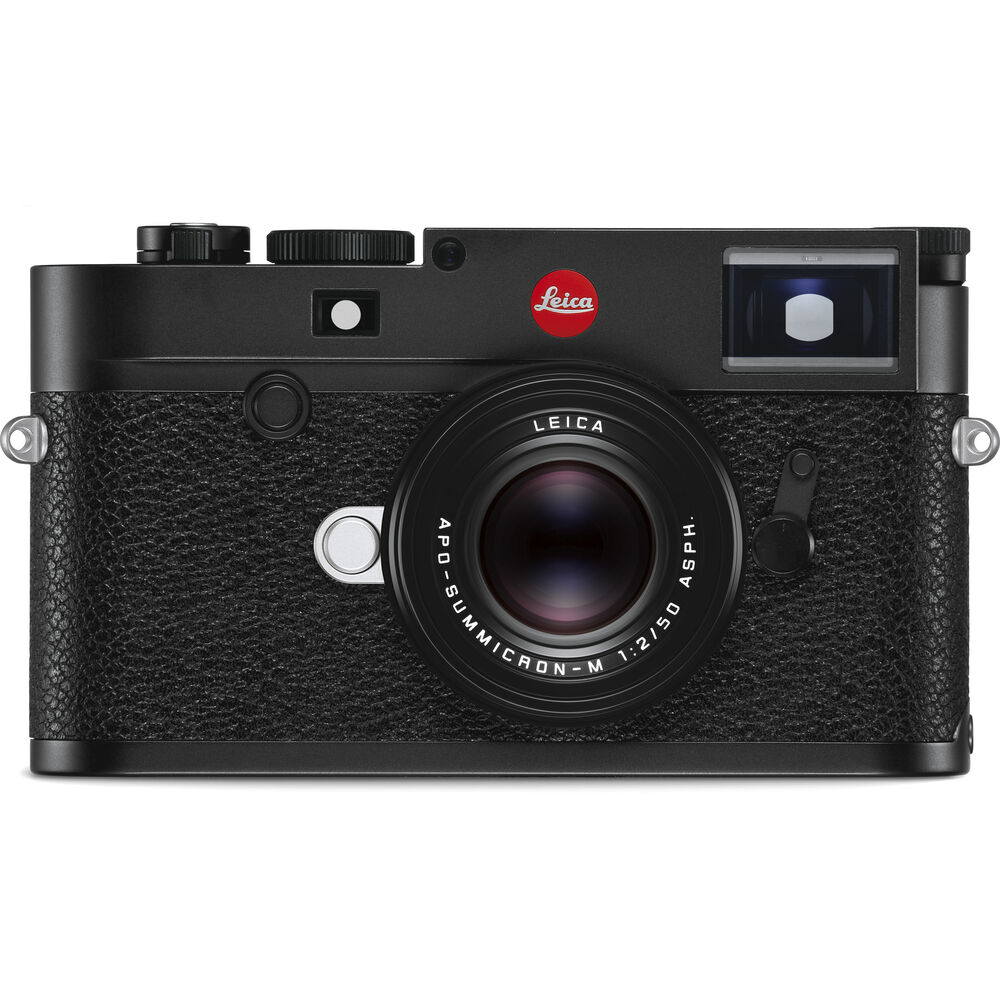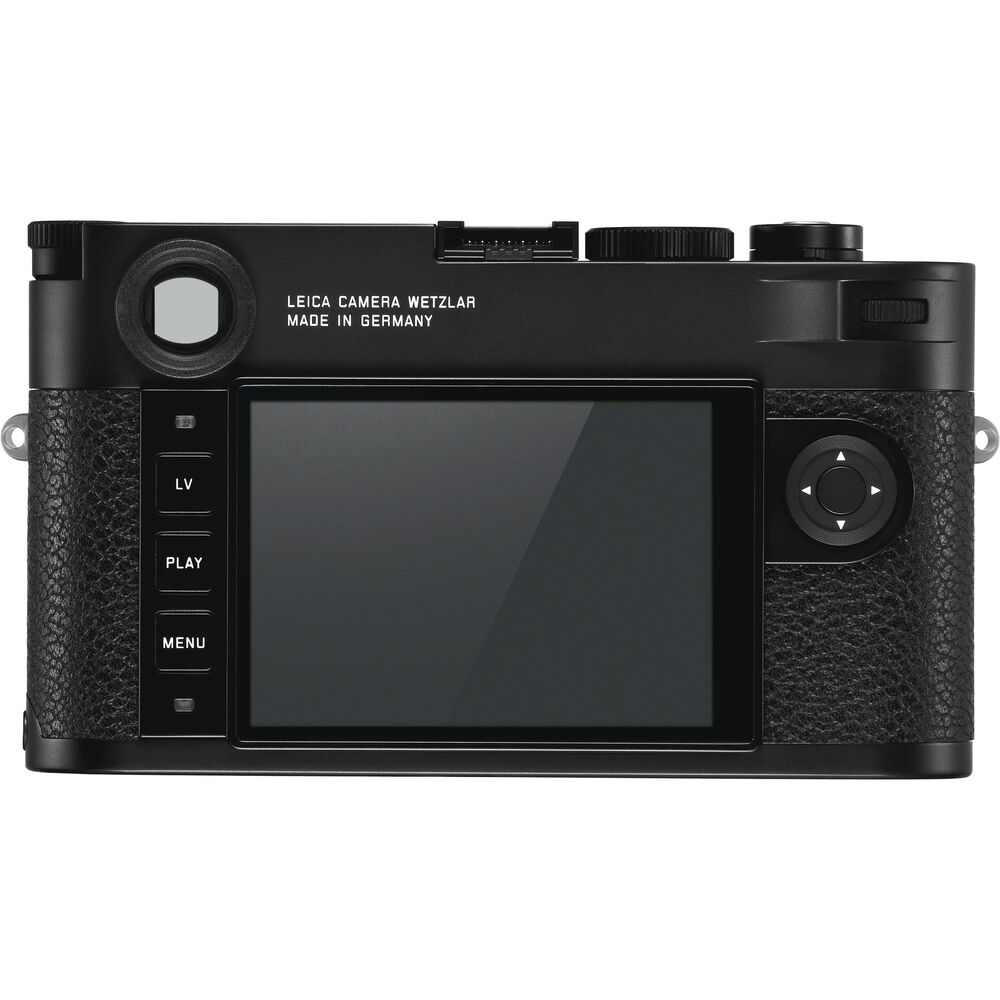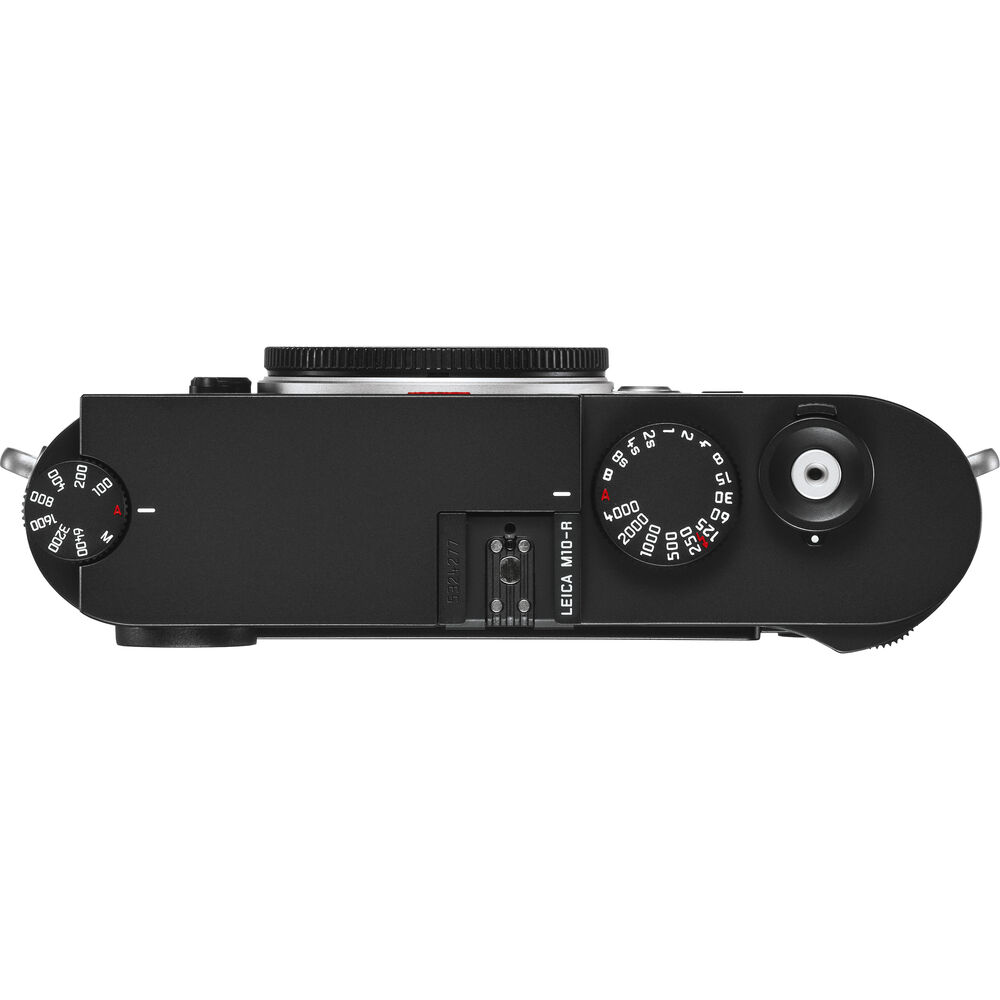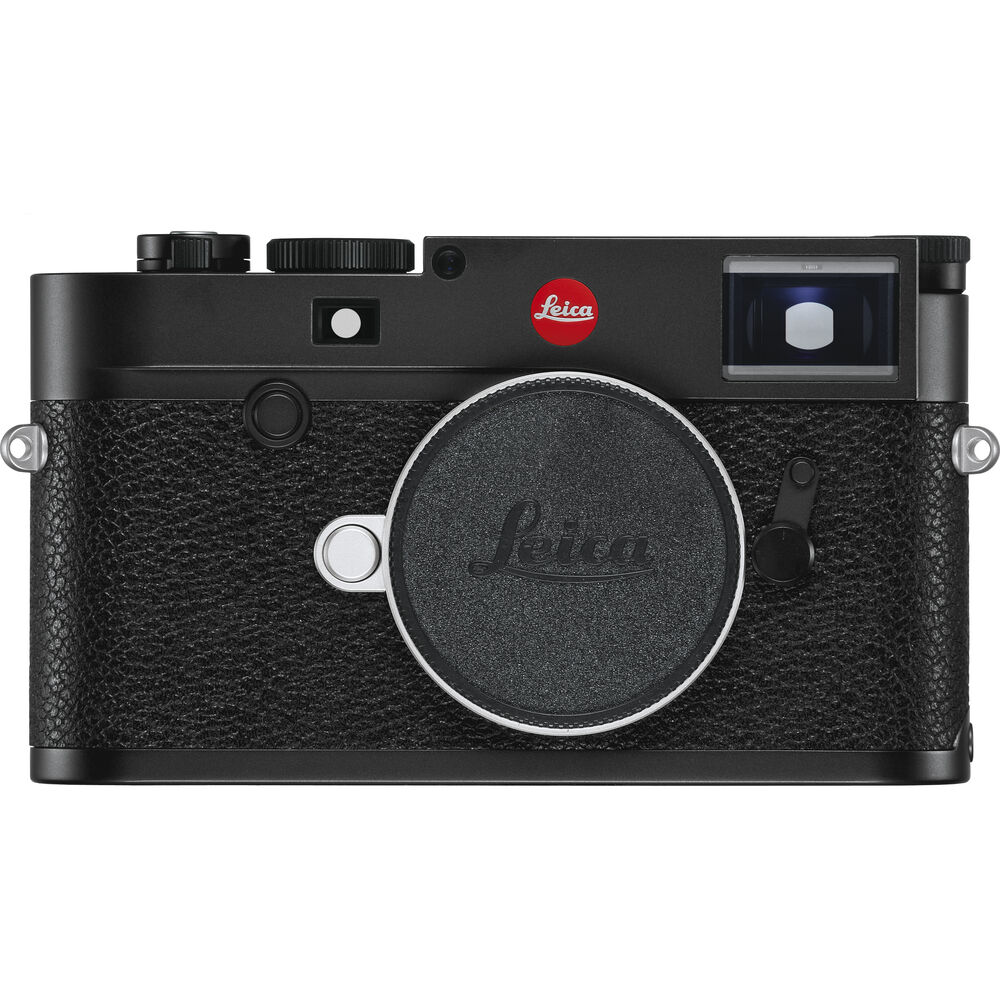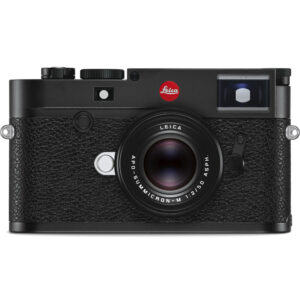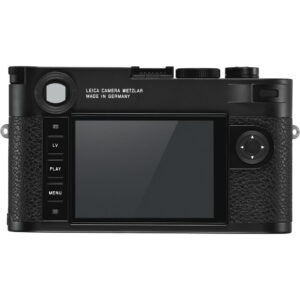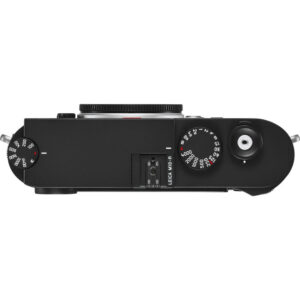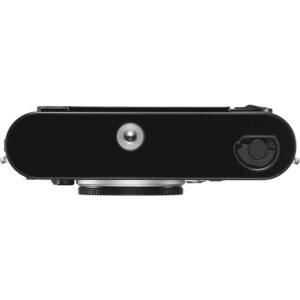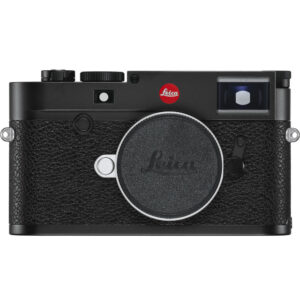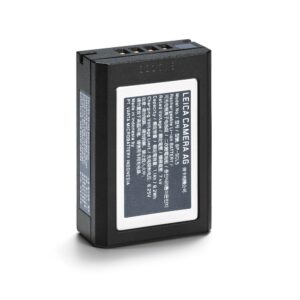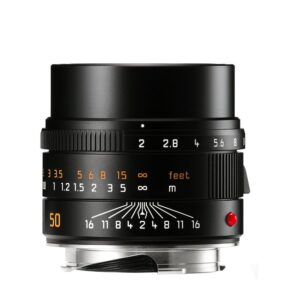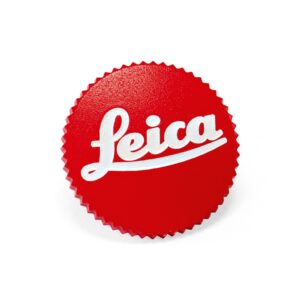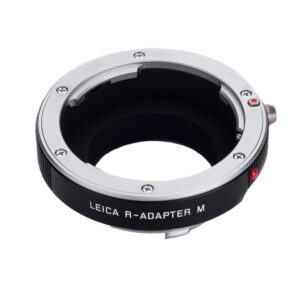- PHOTOGRAPHY
- SPORT OPTICS
- ACCESSORIES
- LEICA WATCH
- CINEMA TV
- MOBILE
Leica LUX App
Leica LUX Grip
- SUPPORT
LEICA M10-R, Black
Leica Camera presents the 40-megapixel variant of its legendary rangefinder camera.
Check this Interview with M-System Product Manager Jesko von Oeynhausen will give you in depth information of the Leica M10-R in regards to design, technology and possibilities.
Want to be notified when this product is back in stock?
Wetzlar, July 16, 2020. With the new Leica M10-R, Leica Camera AG introduces a high-resolution variant of the company’s legendary rangefinder camera. The M10-R’s newly developed sensor offers a resolution of over 40 megapixels, which represents a considerable increase compared to the M10. As a result, the M10-R delivers a significantly enhanced rendition of details. The new sensor of the M10-R opens up a host of possibilities that are unprecedented within M photography. Along with the clear visibility of even the finest details, the sensor provides extensive performance reserves for cropping and larger formats. In addition, the contrast-rich rendition of subtle structures leads to an even lower risk of moiré patterns. The M10-R is therefore well suited for landscape and architectural photography.
Despite its high resolution, the M10-R offers significantly reduced image noise as well as a wider dynamic range. The M10-R completes the Leica M10 family, which also includes the M10, M10-P, M10-D and M10 Monochrom.
The M10-R’s base sensitivity of ISO 100 and goes up to ISO 50000. The maximum exposure time has been increased to 16 minutes, enabling extraordinary night-time shots with the use of a tripod. The Leica M10-R is equipped with the same shutter as the Leica M10-P. It is not only exceptionally quiet (allowing for an unobtrusive way of working), but also operates with minimal vibration. This reduces the risk of camera shake.
As with all of Leica’s rangefinder cameras, the construction of the M10-R involves a large proportion of manual assembly by highly trained specialists, carried out at the company’s production plant in Wetzlar. This ensures that the large number of mechanical components – such as the complex rangefinder – not only perform with the utmost precision, but are also particularly robust. A Leica M is synonymous with the utmost reliability and durability, making it a viable long-term investment.
The Leica M10-R is best able to reach its full potential when paired with Leica M lenses. Equally, the camera has the capacity to fully utilize the outstanding imaging performance that distinguishes this legendary lens range. Particularly in combination with the newest generation, such as the APO-Summicron-M 50 f/2 ASPH., the M10-R delivers photographs of a truly exceptional quality. At the same time, the camera emphasizes the distinctive characteristics of older M lenses cherished by photography enthusiasts all over the world.
| Weight | 3.5 kg |
|---|---|
| Dimensions | 31 × 22 × 25 cm |
Technical Data
| Camera type: | Leica M10-R, compact digital rangefinder system camera | |
| Lens mount: | Leica M bayonet with additional sensor for 6-bit coding | |
| Lens system: | Leica M lenses, R lenses can be used with optional adapter | |
| Image Sensor: | CMOS chip, active area approx. 24×36 mm, without low-pass filter | |
| Resolution: | DNG™: 7864 x 5200 pixels (40,89 MP), JPEG: 7840 x 5184 pixels (40,64 MP), 5472 x 3648 pixels (20 MP), 2976 x 1984 pixels (6MP) | |
| Data Format: | DNG (raw data, lossless compression), JPEG | |
| File Size: | DNG: 40-60 MB, JPEG (40MP)10-20 MB: Depending on resolution and picture content | |
| Buffer Memory: | 2GB / 10 pictures in series | |
| White Balance: | Automatic, manual, 8 presets, color temperature input | |
| Storage Medium: | SD cards up to 2GB, SDHC cards up to 32GB, SDXC cards up to 2TB | |
| Menu Language: | German, English, French, Spanish, Italian, Portuguese, Japanese, Traditional Chinese, Simplified Chinese, Russian, Korean | |
| Exposure Metering: | Exposure metering through the lens (TTL), with working aperture | |
| Metering Method: | For metering the light reflected by light blades of the 1st shutter curtain onto a measuring cell: Strong center-weighted; for metering on the sensor: Spot, center-weighted, multi-field metering | |
| Metering Range: | At room temperature and normal humidity for ISO 200, at aperture 1.0 EV-2 to EV19 at aperture 32. Flashing of the left triangular LED in the viewfi nder indicates values below the metering range | |
| Sensitivity Range: | ISO 100 to ISO 50,000 | |
| Exposure Modes: | Choice of automatic shutter speed control with manual aperture pre-selection – aperture priority A, or manual shutter speed and aperture setting | |
| Flash Exposure Control | ||
| Flash Unit Attachment: | Via accessory shoe with central and control contacts | |
| Synchronization: | Optionally triggered at the 1st or 2nd Shutter curtain | |
| Flash Sync Time: | 1/180s; slower shutter speeds can be used, if working below sync speed: Automatic changeover to TTL linear flash mode with HSS compatible Leica system flash units | |
| Flash Exposure Metering: | Using center-weighted TTL pre-flash metering with Leica flash units (SF40, SF64, SF26, SF60), or flash units compatible with the system with SCA3502 M5 adapter | |
| Flash Measurement Cell: | 2 silicon photo diodes with collection lens on the camera base | |
| Flash Exposure Compensation: | ±3EV in1⁄3 EV increments | |
| Displays in Flash Mode (in viewfinder only): | Using flash symbol LED | |
| Viewfinder | ||
| Construction Principle: | Large, bright line frame viewfinder with automatic parallax compensation | |
| Eyepiece: | Calibrated to -0.5 diopter; corrective lenses from -3 to +3 diopter available | |
| Image Field Limiter: | By activating two bright lines each: For 35 and 135mm, for 28 and 90mm, or for 50 and 75mm; automatic switching when lens is attached | |
| Parallax Compensation: | The horizontal and vertical difference between the viewfinder and the lens is automatically compensated according to the relevant distance setting, i.e. the viewfinder bright-line automatically aligns with the subject detail recorded by the lens. | |
| Matching Viewfinder & Actual Image: | At a range setting of 2m, the bright-line frame size corresponds exactly to the sensor size of approx. 23.9 x 35.8mm; at infinity setting, depending on the focal length, approx. 7.3% (28mm) to 18% (135mm) more is recorded by the sensor than indicated by the corresponding bright line frame and slightly less for shorter distance settings than 2m | |
| Magnification (For all lenses): | 0.73x | |
| Large-base Range Finder: | Split or superimposed image range finder shown as a bright field in the center of the viewfinder image | |
| Effective Metering Basis: | 50.6mm (mechanical measurement basis 69.31mm x viewfinder magnification 0.73x) | |
| Displays | ||
| In the Viewfinder: | Four-digit digital display with dots above and below | |
| On Back: | 3” color touchscreen TFT LCD with 16 million colors and 1,036,800 pixels, approx. 100% image field, glass cover of extremely hard, scratch resistant Gorilla glass, color space: sRGB, for Live-View and review mode, displays, level gauge display | |
| Shutter & Shutter Release | ||
| Shutter: | Metal blade focal plane shutter with vertical movement, near-silent operation | |
| Shutter Speeds: | For aperture priority: (A) continuous from 16min to 1⁄4000s., for manual adjustment: 8s to 1⁄4000s in half steps, from 8s to 16min in half steps, B: For long exposures up to maximum 16min (in conjunction with self-timer T function, i.e. 1st release = shutter opens, 2nd release = shutter closes), (1⁄180s): Fastest shutter speed for flash synchronization, HSS linear flash mode possible with all shutter speeds faster than 1⁄180s (with HSS-compatible Leica system flash units) | |
| Picture Series: | Approx. 4.5 pictures/s | |
| Shutter Release Button: | Two-stage, 1st step: Activation of the camera electronics including exposure metering and exposure lock (in aperture priority mode), 2nd step: Shutter release; standard thread for cable release integrated. | |
| Self-Timer: | Delay 2s (aperture priority and manual exposure setting) or 12s, set in menu, indicated by flashing LED on front of camera and corresponding display in monitor. | |
| Turning The Camera On/Off: | Using main switch on top of camera; optional automatic shutdown of camera electronics after approx. 2/5/10 minutes; reactivated by tapping the shutter release | |
| Power Supply: | 1 lithium ion rechargeable battery, nominal voltage 7.4V, capacity 1300mAh.; maximum charging current/voltage: DC 1000mA, 7.4V; Model No.: BP-SCL5; Manufacturer: PT. VARTA Microbattery, Made in Indonesia, Operating conditions (in camera): 0°C – + 40°C | |
| Charger: | Inputs: 100-240V AC, 50/60Hz, 300mA, automatic switching, or 12V DC, 1.3A; Output: DC 7.4V, 1000mA/max. 8.25V, 1100mA; Model No.: BC-SCL5; Manufacturer: Guangdong PISEN Electronics Co., Ltd., Made in China, Operating conditions: 0°C – + 35°C | |
| GPS: | Only with Leica Visoflex viewfinder attached, available as an accessory | |
| Wi-Fi: | Complies with IEEE 802.11b/g/n standard (standard WiFi protocol), channel 1-11, encryption method: WiFi-compatible WPA/WPA2 encryption, access method: Infrastructure mode | |
| Camera Body | ||
| Material: | All-metal die cast magnesium body, synthetic leather covering. Brass top panel and base, black or silver chrome plated finish | |
| Image Field Selector: | Allows the bright-line pairs to be manually activated at any time (e.g. to compare detail) | |
| Tripod Thread: | A ¼” DIN stainless steel in bottom | |
| Operating Conditions: | 0-40°C | |
| Interfaces: | ISO accessory shoe with additional contacts for Leica Visoflex viewfinder (available as an accessory) | |
| Dimensions: | (width x depth x height): approx. 139 x 38.5 x 80mm | |
| Weight: | approx. 660g (with battery) | |
| Scope of Delivery: | Charger 100-240V with 2 mains cables (Euro, USA,) and 1 car charging cable, lithium ion battery, carrying strap, body bayonet cover, cover for accessory shoe |








